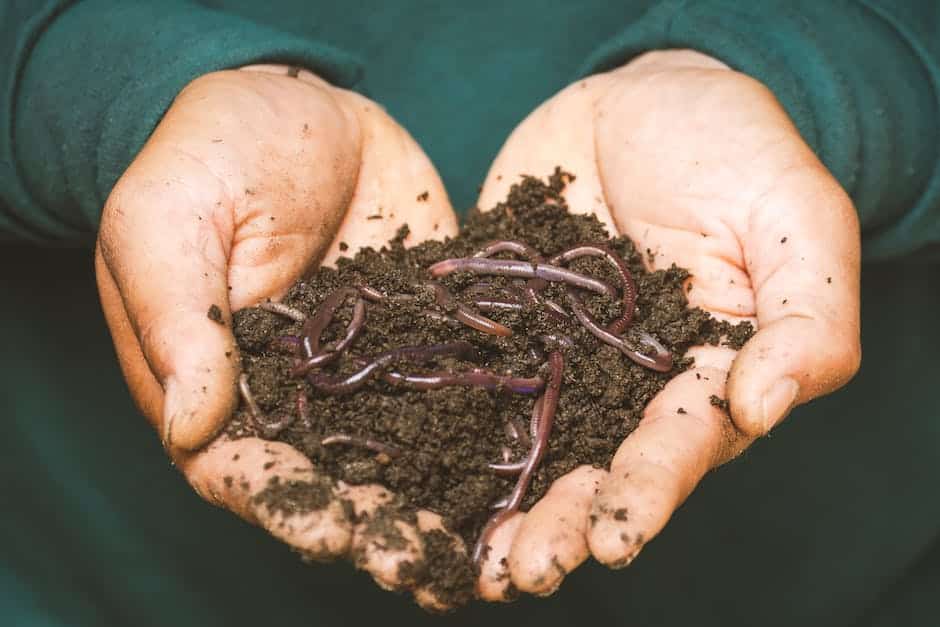Are there Harmful Worms in Garden Soil I Should be Aware of?
Yes, there are several harmful worms that can exist in garden soil and cause damage to your plants. These worms can eat away at plant roots and leaves, disrupt the growth of your plants, and even destroy them if left unchecked. It’s important to be able to identify these harmful worms so that you can take appropriate measures to protect your garden. Let’s take a closer look at some of the common harmful worms found in garden soil and how to identify them.
1. Red Worms
Red worms are one type of harmful worm that can damage plants by disturbing the soil or chewing on roots. They can be identified by their reddish-brown color and their role in burrowing into the ground and feeding on plant roots.
2. Nightcrawlers
Nightcrawlers are another type of harmful worm that burrows into the ground and feeds on plant roots. They are active at night and can cause significant damage to crops if left unchecked. Nightcrawlers are usually larger in size compared to other worms and can be easily identified by their size and behavior of coming out at night.
3. Tiger Worms
Tiger worms, also known as red wiggler worms, are composting worms that can cause damage to plant roots if they multiply in large numbers. They have segmented, reddish-brown bodies with stripes, and can grow to about 4 to 6 inches in length. Tiger worms can be identified by their appearance and their tendency to tunnel through the roots of plants.
4. Common Earthworms
Some types of common earthworms, such as cutworms, wireworms, and serpentine grubs, can eat their way through root systems and cause plant damage or death. Cutworms have smooth bodies and curl into a C-shape when disturbed. They attack a wide range of plants and feed on the stems, suffocating the plant in the process. Wireworms are thin, yellow or brown worms with hard, cylindrical bodies. They can cause damage to roots and tubers, leading to stunted growth. Serpentine grubs are white, worm-like larvae with dark heads and can damage the roots of plants.
5. Nematodes
Nematodes are microscopic worms that attack plant roots and can cause large galls or “knots” to develop throughout the root system. They are not visible to the naked eye and are often found in subtropical and tropical regions with light soil. Nematode infestations can lead to stunted growth, wilting, and reduced yield in plants.
6. Land Flatworms
Land flatworms have flat, soft bodies that resemble ribbons and are usually found in shady areas with wet soil. They can grow up to 1 foot long and can cause damage to plants if left unchecked.
7. Jumping Worms
Jumping worms crawl like snakes on the topsoil and have a dark brown color with smooth bodies. They can grow about 6 inches long and can be identified by a fleshy band near the end of the worm. Jumping worms can disrupt the soil structure and have a negative impact on plant growth.
It’s important to note that not all worms found in garden soil are harmful. There are many beneficial worms, such as earthworms, that enrich the soil and aid in plant growth. It’s crucial to distinguish between harmful worms and beneficial ones to maintain a healthy garden ecosystem.
Conclusion
There are several harmful worms that can exist in garden soil and cause damage to your plants. It’s important to be able to identify these worms in order to take appropriate action to protect your garden. Red worms, nightcrawlers, tiger worms, common earthworms (including cutworms, wireworms, and serpentine grubs), nematodes, land flatworms, and jumping worms are some of the common harmful worms that can affect your garden. By observing their physical characteristics, behavior, and the damage they cause, you can identify and address these harmful worms effectively.
Related Websites:
FAQs:
Q: Why is garden soil important in gardening?
Garden soil plays a crucial role in providing nutrients, water, and support to plants. It promotes healthy root growth and ensures optimal plant growth and overall gardening success.
Q: What are the types of worms commonly found in garden soil?
Common types of worms found in garden soil include earthworms, red wigglers, and nightcrawlers. These worms are beneficial as they enhance soil fertility and contribute to the overall health of the garden.
Q: What are harmful worms and how do they affect plants?
Harmful worms are those that can cause damage to plants. Examples include cutworms, root maggots, and wireworms. These worms can feed on plant roots, stems, and foliage, resulting in stunted growth, wilting, and even death of the plants.
Q: How can I prevent the presence of harmful worms in my garden soil?
To prevent harmful worms, practicing good garden hygiene is essential. Avoid overwatering, remove dead plant debris, rotate crops, and use organic pest control methods. Additionally, regularly inspecting plants for signs of infestation can help catch and address worm issues early.
Q: How do beneficial worms improve soil health?
Beneficial worms, like earthworms, enhance soil structure by creating tunnels that improve aeration and drainage. They also break down organic matter, releasing essential nutrients for plants. Additionally, their activities increase microbial activity, which further contributes to soil health.






